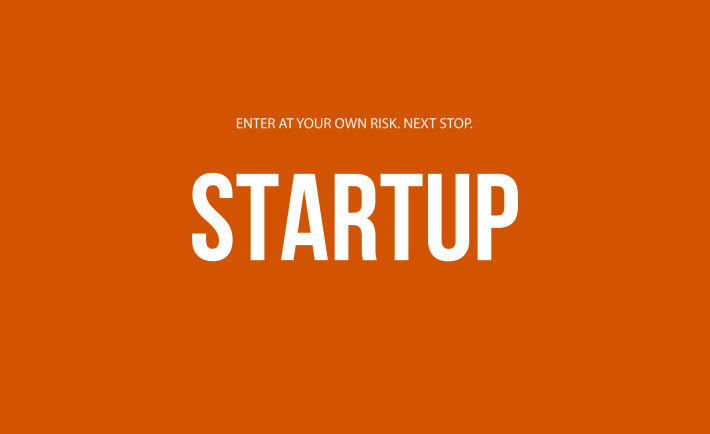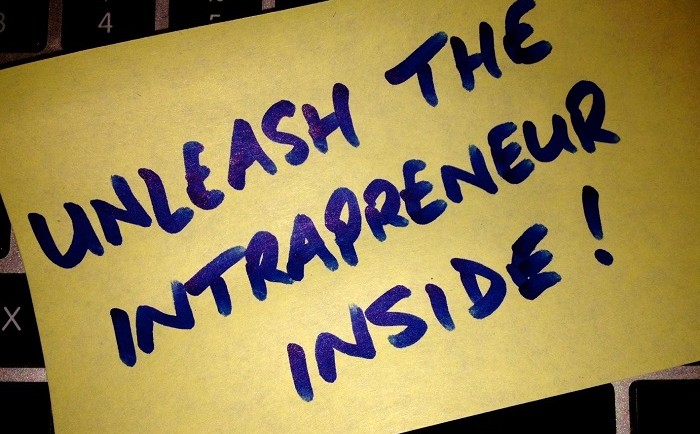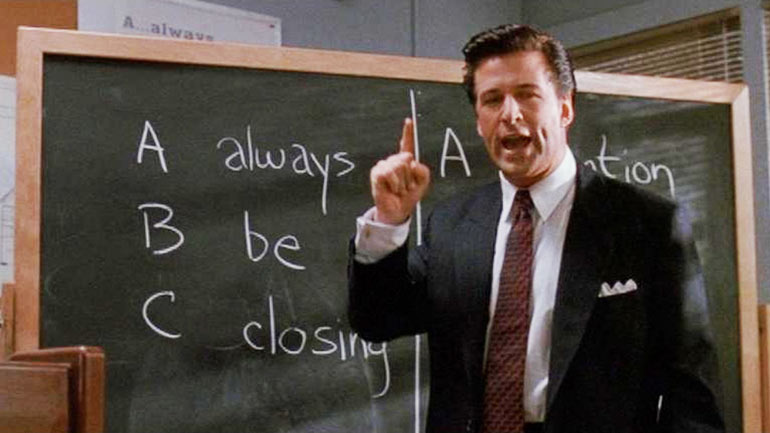The ability to lead is forged in the fire of failure.
Try saying that fast three times.
We’ve all heard sayings like that and most of us, just as I did in my early days as an entrepreneur, rebut them with things like “I will learn from their mistakes” and “I will see things like X coming”.
While it’s true you can learn from the past mistakes of others, and if you’re paying attention can anticipate many issues, there will always be things that happen outside your bubble of control. How you respond to them is what enables you to achieve success, and ultimately what forges a real leader.
But What Is Failure?
Failures, repeated failures, are finger posts on the road to achievement. One fails forward toward success. – C. S. Lewis
It’s often viewed as closing the doors to your business, or for startups not getting backed by investors. Are those “big” failures? Of course they are and there is plenty you can learn from them, but in reality we fail at things on a daily basis. Not closing a deal, messing up a relationship, not doing our best and coming in second. The list of “micro-failures” could go on and on, but micro or macro, they are still failures we can learn from.
It’s important that we learn from these and don’t just wait for a big one that requires massive emotional upheaval to force change. To that end I’d like to address a two examples of personal failure, one micro and one macro and what I’ve learned from them.
Failure To Communicate
My great concern is not whether you have failed, but whether you are content with your failure. – Abraham Lincoln
This is one of my greatest failures. Which is ironic given that I am a public speaker, have been very successful in business development, grown multiple companies, employed over 100 people, and the ability to connect is one of my greatest strengths.
However, responding to requests promptly is by far my biggest flaw. Whether it be email, phone calls, texts. Sometimes I’m an instant communicator, sometimes it takes me a week to get back with you. Very often it’s not that I can’t respond, it’s that I let my mind zip off in a million directions and forget to remind myself to respond.
When I had a business full of employees, I would spend so much time bringing in business and responding to clients that I wasn’t addressing issues inside the company. Thankfully I had a partner that handled a lot of the internal drama, but very often I was finding out about things after the fact.
What I Learned
Failure is the key to success; each mistake teaches us something.
Morihei Ueshiba
After getting angry about not being informed of things going on inside my company, it dawned on me to just take time and have conversations with my team.
I began to make it a point to have a conversation with a different employee everyday, and find out about what was going on in their lives outside of work. This worked to different levels of success, but it enabled me to gain their trust, share ideas, and with quite a few of them build relationships that continue to this day. There are several that have become true friends, and would do anything I asked of them.
A leader is not a leader without those who will follow and do what they are asked without hesitate. But you are also not a leader unless you have the ability to gain trust and not just a have a pack of “yes men”.
While failure to communicate is something I still battle on a regular basis in context of emails and phone calls, my ability to connect with people, inspire trust, encourage innovation and help others expand their vision of life has grown exponentially.
Failure To Suppress Ego
Failure is not fatal, but failure to change might be.
John Wooden –
This one required a massive upheaval in my life.
While I’ve never been an obnoxious jerk talking down to people, my true failure came from the mindset of not recognizing that achieving your dream requires the help of others. This is an extraordinarily common train of thought for most entrepreneurs.
We’re out there to win, make big things happen, and it’s get on the train or get out of my way. It’s very easy to have this mindset in the early stages of leadership. Fewer responsibilities, not too many employees, and the energy of youth.
In my case, it took near death to realize my own limitations. I went from riding high to the depths of despair in a very short period of time.
Before having a massive brain hemorrhage I had a near perfect memory. Not that I always used it correctly, but I could recall conversations verbatim. Suddenly this was gone.
Strategies, client contact information, next steps in different projects, gone. Not wiped completely from my memory but I couldn’t recall them. Thankfully over time my memory has returned close to it’s former capacity, but at that time it was a significant hurdle to overcome.
What I Learned
Every adversity, every failure, every heartache carries with it the seed of an equal or greater benefit. – Napoleon Hill
As the world I had built for myself began to crumble, the realization that refusing to suppress my ego and bring others in to support my role in the company was a massive failure. The reality that your world can change at a moments notice became very apparent, and ironically my failure to communicate had additional ramifications.
As a leader, it is very likely you have been gifted a variety of areas, and when it comes time to turn over responsibilities to others it can be very difficult. You feel like it will get done better if you do it, that they just need to catch up, how can this possibly be hard to figure out etc.
While this may be true in the short term, in the long term it will come back to bite you.
It Doesn’t Take A Comeback
I don’t know what leadership is. You can’t touch it. You can’t feel it. It’s not tangible. But I do know this, you recognize it when you see it. – Bob Ehrlich
The point of this article is to inspire others to learn from their mistakes, but not rely on massive failures that require a comeback from nothing. In truth, you can learn more from the mistakes made on a daily basis than the big ones.
Sure the big ones can make a bigger impact, but they are also more difficult to overcome. If you build a track record of recognizing your weaknesses as a leader and doing something about it, over time your confidence will expand.
When the big decisions come, issues outside your control arise or suddenly your own abilities are reduced, if you have successfully become a leader, those who follow you will be there. They will help you overcome roadblocks and rise to a whole new level of leadership.
So does becoming a leader require failure? Absolutely. But what is your definition of it?
Success is often achieved by those who don’t know that failure is inevitable. – Coco Chanel











 “Although it is historical fiction, Forrest Gump is one of my favorite inspirational movies that has entrepreneurial ties. My takeaway is that everyone has challenges that they have to overcome in life, but how you respond to them is what separates the people who succeed from those who don’t. Also, it is important to persevere and take advantage of unique opportunities presented to you.”
“Although it is historical fiction, Forrest Gump is one of my favorite inspirational movies that has entrepreneurial ties. My takeaway is that everyone has challenges that they have to overcome in life, but how you respond to them is what separates the people who succeed from those who don’t. Also, it is important to persevere and take advantage of unique opportunities presented to you.” “I always watch Twister with a sense of awe. Yes, it’s fiction, but the idea that you believe so much in a solution to risk life and limb to get it out there is inspiring. Throughout the film, they continually test and adapt the solution until it finally works. I may not be putting my solution in front of a tornado, but it’s that level of dedication I’m striving towards.”
“I always watch Twister with a sense of awe. Yes, it’s fiction, but the idea that you believe so much in a solution to risk life and limb to get it out there is inspiring. Throughout the film, they continually test and adapt the solution until it finally works. I may not be putting my solution in front of a tornado, but it’s that level of dedication I’m striving towards.” “This movie talks about Coco Chanel and her journey to starting her company. The true takeaway is that you never know what’s going to work in your business, and that sometimes starting with hats will lead to perfume or vice versa. Being uncompromising about your tastes will also lead to having a strong brand.”
“This movie talks about Coco Chanel and her journey to starting her company. The true takeaway is that you never know what’s going to work in your business, and that sometimes starting with hats will lead to perfume or vice versa. Being uncompromising about your tastes will also lead to having a strong brand.” “Zoolander contains the best entrepreneurship wisdom I know: “What is this? A center for ants?…The building has to be at least … three times bigger than this!” It’s a great lesson in remembering your dreams should be at least three times bigger than what you originally thought – and that they’ll be at least three times as much work!”
“Zoolander contains the best entrepreneurship wisdom I know: “What is this? A center for ants?…The building has to be at least … three times bigger than this!” It’s a great lesson in remembering your dreams should be at least three times bigger than what you originally thought – and that they’ll be at least three times as much work!” “Dave is a classic Kevin Kline movie where he stands in as the President. As the chief, he needs to lead a massive organization: he has to find his own leadership style, rally a team and make compromises on his vision. The most relevant takeaway: he’s successful specifically because he has an outside opinion. Startup success relies on being open-minded and re-examining the way things are done.”
“Dave is a classic Kevin Kline movie where he stands in as the President. As the chief, he needs to lead a massive organization: he has to find his own leadership style, rally a team and make compromises on his vision. The most relevant takeaway: he’s successful specifically because he has an outside opinion. Startup success relies on being open-minded and re-examining the way things are done.” “No, I’m not encouraging or condoning anyone who commits fraud, violates SEC regulations, or acts like a sociopath. However, that does not mean there aren’t some great things for entrepreneurs in the movie. One positive takeaway from Boiler Room is Seth’s relentless hustle and scrappiness. He just crushes through problems (both good and bad) and get’s stuff done!”
“No, I’m not encouraging or condoning anyone who commits fraud, violates SEC regulations, or acts like a sociopath. However, that does not mean there aren’t some great things for entrepreneurs in the movie. One positive takeaway from Boiler Room is Seth’s relentless hustle and scrappiness. He just crushes through problems (both good and bad) and get’s stuff done!” “From the greatest book ever written, there are lots of movie adaptations, but the 1972 version with Sophia Loren is best. What better representation of an entrepreneur than an idealist who sets out to revive some important value in the world while the world thinks he’s crazy? Through a series of entrepreneurial “adventures.” he comes to greater realizations about life, love, meaning and value.”
“From the greatest book ever written, there are lots of movie adaptations, but the 1972 version with Sophia Loren is best. What better representation of an entrepreneur than an idealist who sets out to revive some important value in the world while the world thinks he’s crazy? Through a series of entrepreneurial “adventures.” he comes to greater realizations about life, love, meaning and value.” “A film I particularly enjoyed is called Startup.com, which chronicles the short history of the failed website govWorks.com. This site was created to provide citizens an easy way to pay traffic tickets to municipal governments, among other things. The film teaches you that you can’t launch a business based solely on an idea; you must do thorough research it to see if it’s viable and can last.”
“A film I particularly enjoyed is called Startup.com, which chronicles the short history of the failed website govWorks.com. This site was created to provide citizens an easy way to pay traffic tickets to municipal governments, among other things. The film teaches you that you can’t launch a business based solely on an idea; you must do thorough research it to see if it’s viable and can last.” “Andy Dufrense is an entrepreneur, even if it’s not obvious: he grows a small tax preparation business inside prison walls into a library and education system into a full-fledged successful prison break. The scene that sticks with me is when Dufrense finds out that his letter writing campaign has paid off — he responds that he’s going to write even more letters, just like a good founder would.”
“Andy Dufrense is an entrepreneur, even if it’s not obvious: he grows a small tax preparation business inside prison walls into a library and education system into a full-fledged successful prison break. The scene that sticks with me is when Dufrense finds out that his letter writing campaign has paid off — he responds that he’s going to write even more letters, just like a good founder would.” “Your great idea will strike in the midst of a challenge. Classic Diane Keaton, career-driven new mom in the ’80s, quits her demanding job to focus on a baby. While in the midst of her breakdown, she discovers an unserved market with a huge demand in natural baby food. The lesson to take away is that opportunities are everywhere – if you’re paying attention!”
“Your great idea will strike in the midst of a challenge. Classic Diane Keaton, career-driven new mom in the ’80s, quits her demanding job to focus on a baby. While in the midst of her breakdown, she discovers an unserved market with a huge demand in natural baby food. The lesson to take away is that opportunities are everywhere – if you’re paying attention!”









